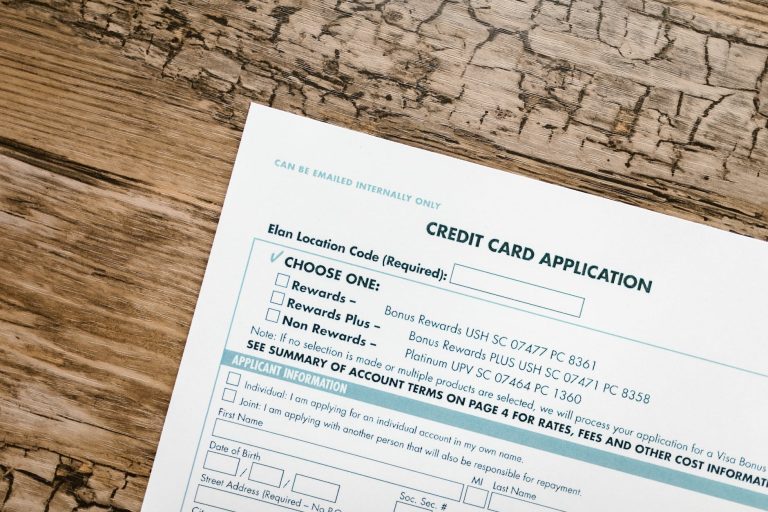How To Build Good Credit
Building and maintaining good credit is one of the most important aspects of financial health. A strong credit score can open doors to lower interest rates, better financial opportunities, and increased purchasing power. Unfortunately, many people misunderstand how credit works and fall into common pitfalls that can damage their financial standing.
While credit cards and loans come with risks, responsible use can help you build a solid credit history and leverage financial tools to your advantage. This guide will walk you through the essential strategies for building good credit, avoiding costly mistakes, and maintaining financial stability over the long term.
Understanding Credit and How It Works
To build and maintain good credit, it’s crucial to understand how the credit system works. Your credit score is a numerical representation of your creditworthiness, determined by several key factors that lenders use to assess risk when approving loans or credit cards.
What is a Credit Score?
A credit score is a three-digit number that reflects your creditworthiness. The most commonly used scoring model is the FICO Score, which ranges from 300 to 850. Higher scores indicate lower risk for lenders, while lower scores suggest a higher risk of default.
Key Factors That Affect Your Credit Score:
- Payment History (35%) – Paying bills on time is the most significant factor in determining your credit score. Late or missed payments can have a severe negative impact.
- Credit Utilization (30%) – This refers to how much of your available credit you’re using. A good rule of thumb is to keep credit utilization below 30% to maintain a healthy score.
- Length of Credit History (15%) – The longer your credit history, the better. Lenders prefer to see a track record of responsible credit management.
- New Credit Inquiries (10%) – Each time you apply for a new credit account, a hard inquiry is made on your report. Too many inquiries in a short period can lower your score.
- Credit Mix (10%) – A diverse mix of credit accounts (credit cards, auto loans, mortgages, etc.) can improve your score, as it shows lenders you can handle different types of credit responsibly.
Why Your Credit Score Matters
A strong credit score is essential for:
- Qualifying for loans and credit cards with favorable terms.
- Securing lower interest rates on mortgages, car loans, and personal loans.
- Increasing your chances of approval for rental applications.
- Lowering insurance premiums and improving job prospects in certain industries.
By understanding how credit works and what impacts your score, you can make informed financial decisions that support long-term financial stability. In the next section, we’ll discuss the common pitfalls to avoid when using credit.
Smart Credit Usage – Avoiding Common Pitfalls
Many people fall into credit traps that damage their scores and lead to long-term financial problems. Avoiding these pitfalls is essential to maintaining strong credit.
Common Credit Mistakes to Avoid:
- Only Paying the Minimum Balance – Credit card companies set low minimum payments to keep you in debt longer. Always aim to pay your full statement balance or, at the very least, more than the minimum due.
- Maxing Out Credit Cards – High credit utilization signals to lenders that you may be overextended. Keeping your balance below 30% of your credit limit helps maintain a strong score.
- Making Late Payments – Payment history is the most significant factor in your credit score. Even one late payment can negatively impact your score and lead to penalty fees.
- Applying for Too Many Credit Accounts at Once – Every credit application results in a hard inquiry, which can temporarily lower your score. Space out applications to avoid multiple hits.
- Closing Old Credit Accounts – The length of credit history plays a role in your score, so keeping older accounts open can be beneficial. Only close accounts if necessary.
- Ignoring Your Credit Report – Errors on your credit report can lower your score unfairly. Regularly review your credit reports and dispute inaccuracies.
By understanding these common pitfalls, you can take proactive steps to use credit wisely and protect your financial health.
Strategies to Build and Improve Your Credit Score
If you’re starting from scratch or need to improve a low score, these strategies can help you build and maintain good credit over time.
1. Pay Bills on Time, Every Time
Since payment history makes up 35% of your credit score, making on-time payments is crucial. Set up automatic payments or reminders to avoid late fees and negative marks on your report.
2. Keep Your Credit Utilization Low
Lenders prefer borrowers who use credit responsibly. Try to keep your balance below 30% of your total credit limit. If possible, aim for an even lower utilization rate (under 10%) for maximum credit score benefits.
3. Pay More Than the Minimum Due
Making only the minimum payment can keep you in debt for years. Paying extra toward your balance reduces interest charges and helps improve your credit score faster.
4. Diversify Your Credit Mix
A healthy credit profile includes a mix of different types of credit, such as installment loans (auto, student, or personal loans) and revolving credit (credit cards). However, only take on credit you can manage responsibly.
5. Limit New Credit Applications
Each time you apply for a new line of credit, a hard inquiry is placed on your report. Too many inquiries in a short time can lower your score. Only apply for credit when necessary.
6. Check Your Credit Report Regularly
Errors on credit reports are common and can negatively affect your score. You’re entitled to one free credit report per year from each major credit bureau (Equifax, Experian, TransUnion). Review your report and dispute any inaccuracies.
7. Become an Authorized User
If a trusted family member or friend has a long-standing credit card account in good standing, being added as an authorized user can help boost your credit history.
Using Credit Cards to Your Advantage
Credit cards can be powerful financial tools when used responsibly. They provide convenience, fraud protection, and even rewards, but mismanagement can lead to debt accumulation and credit damage. Here’s how to use credit cards to your advantage:
Best Practices for Using a Credit Card Responsibly
- Always pay your balance in full each month to avoid interest charges.
- Keep credit utilization low by using only a small portion of your available credit limit.
- Monitor transactions regularly to detect fraud and unauthorized charges.
How to Make Purchases Without Incurring Debt
- Treat your credit card like a debit card—only charge what you can afford to pay off immediately.
- Set a personal spending limit, even if your credit limit is higher.
- Use your card for recurring bills or planned expenses and pay them off right away.
Automating Payments to Never Miss a Due Date
- Set up automatic payments for at least the minimum amount to avoid late fees.
- Schedule reminders or alerts for upcoming due dates to ensure full balance payment.
- Align credit card due dates with your paycheck schedule for better financial planning.
Using Rewards and Cashback Programs Wisely
- Choose a credit card that matches your spending habits (e.g., travel rewards, cashback on groceries, or fuel discounts).
- Redeem rewards strategically, such as using points for essential purchases or savings.
- Avoid overspending just to earn rewards, as interest charges can outweigh the benefits.
By following these practices, you can maximize the benefits of credit cards while protecting your financial health and maintaining a strong credit score.

The Role of Credit Monitoring and Financial Discipline
Monitoring your credit and practicing financial discipline are essential steps in maintaining a healthy credit score. By keeping track of your credit activity, you can detect potential fraud, catch reporting errors, and ensure you’re on the right financial path.
How to Check Your Credit Report for Free and Dispute Errors
- Every individual is entitled to a free credit report from Equifax, Experian, and TransUnion once a year through AnnualCreditReport.com.
- Review your report for inaccuracies such as incorrect account balances, fraudulent accounts, or incorrect payment histories.
- If you find an error, file a dispute with the credit bureau immediately. The bureau is required to investigate and respond within 30 days.
- Monitoring your credit regularly helps prevent identity theft and ensures your credit score accurately reflects your financial history.
The Importance of Budgeting Alongside Credit Use
- A strong budget helps you stay on track with payments, reducing the risk of late fees and negative marks on your credit.
- Track all income and expenses to ensure that you never overextend your credit usage.
- Allocate funds specifically for debt repayment, ensuring you always meet your financial obligations on time.
- Use budgeting apps or spreadsheets to gain better control over your spending and avoid relying too heavily on credit cards.
Setting Up Alerts and Using Credit Monitoring Services
- Many banks and credit card companies offer free credit score tracking and alerts for suspicious activity.
- Consider enrolling in credit monitoring services such as Experian, Equifax, or Credit Karma, which provide real-time notifications of changes in your credit report.
- Set up alerts for payment due dates, high credit utilization, and new credit inquiries to ensure you maintain good financial health.
- Proactively addressing issues and staying informed about your credit score can prevent financial setbacks and improve your creditworthiness over time.
By consistently monitoring your credit and maintaining disciplined financial habits, you can protect your credit score and enjoy long-term financial stability.
Long-Term Credit Management for Financial Stability
Building and maintaining good credit is not just about achieving a high score—it’s about long-term financial stability and using credit as a tool to secure a better financial future. A strong credit profile provides numerous benefits, including better loan terms, lower insurance premiums, and increased financial opportunities.
How to Maintain a High Credit Score Over Time
- Continue Making On-Time Payments – Payment history remains the most significant factor in your credit score. Set up automatic payments to ensure you never miss a due date.
- Keep Credit Utilization Low – Aim to use less than 30% of your available credit at all times, with a target of under 10% for optimal results.
- Monitor Your Credit Regularly – Checking your credit report frequently allows you to catch errors, track progress, and prevent fraud.
- Keep Old Credit Accounts Open – The length of your credit history contributes to your score, so avoid closing long-standing accounts unless necessary.
- Limit Hard Inquiries – Applying for too much credit in a short period can negatively impact your score, so only apply when needed.
Planning for Major Financial Milestones
Good credit is essential for life’s major financial steps, including:
- Buying a Home – A high credit score qualifies you for lower mortgage interest rates, potentially saving thousands over the loan’s lifetime.
- Purchasing a Vehicle – Auto loan rates vary based on credit score; maintaining good credit ensures better financing options.
- Starting a Business – Lenders often evaluate personal credit when approving business loans, making a strong score crucial for entrepreneurs.
- Renting an Apartment – Many landlords check credit scores to determine tenant reliability, and a high score improves rental application success.
- Applying for Student or Personal Loans – Favorable credit terms result in lower interest rates and more flexible repayment plans.
The Benefits of a Strong Credit Score Beyond Borrowing
A high credit score doesn’t just impact loans—it affects various aspects of financial life:
- Lower Insurance Premiums – Some auto and home insurers use credit scores to set rates, meaning a good score can reduce your costs.
- Better Employment Opportunities – Certain employers check credit history as part of their hiring process, particularly for jobs in finance or management.
- Higher Credit Limits & Better Financial Products – A strong score grants access to higher credit limits, better credit card rewards, and more favorable lending terms.
By following these long-term strategies, you can ensure that your credit remains in good standing, providing financial flexibility and security for years to come.

Conclusion
Building good credit is a long-term commitment that requires consistent effort and smart financial habits. By following the key strategies outlined in this guide, you can establish a solid credit foundation and unlock financial opportunities that will benefit you for years to come.
Recap of Key Strategies for Building Good Credit
- Pay your bills on time to maintain a strong payment history.
- Keep your credit utilization low to show responsible credit management.
- Regularly monitor your credit report for errors and inaccuracies.
- Use credit cards wisely by paying off balances in full and taking advantage of rewards.
- Diversify your credit mix and avoid opening too many accounts at once.
- Plan for major financial milestones by maintaining a healthy credit score.
Take Control of Your Financial Future
Good credit isn’t just about getting approved for loans—it’s about securing financial stability and peace of mind. When you have strong credit, you gain the flexibility to make informed financial decisions without being burdened by high interest rates or limited borrowing options.
Start Today for Long-Term Success
The best time to improve your credit is now. Begin by reviewing your credit report, setting up automatic payments, and making conscious financial choices. The sooner you implement these habits, the sooner you’ll enjoy the benefits of excellent credit. Whether your goal is homeownership, business growth, or financial freedom, a strong credit score will help pave the way for a brighter future.
(Editors note: Updated on 3/17/25)
© 2015-2023 by burdenofdebt.com, a LIVenture. All rights reserved. No part of this document may be reproduced or transmitted in any form or by any means, electronic, mechanical, photocopying, recording, or otherwise, without prior written permission of LiVentures LLC.






